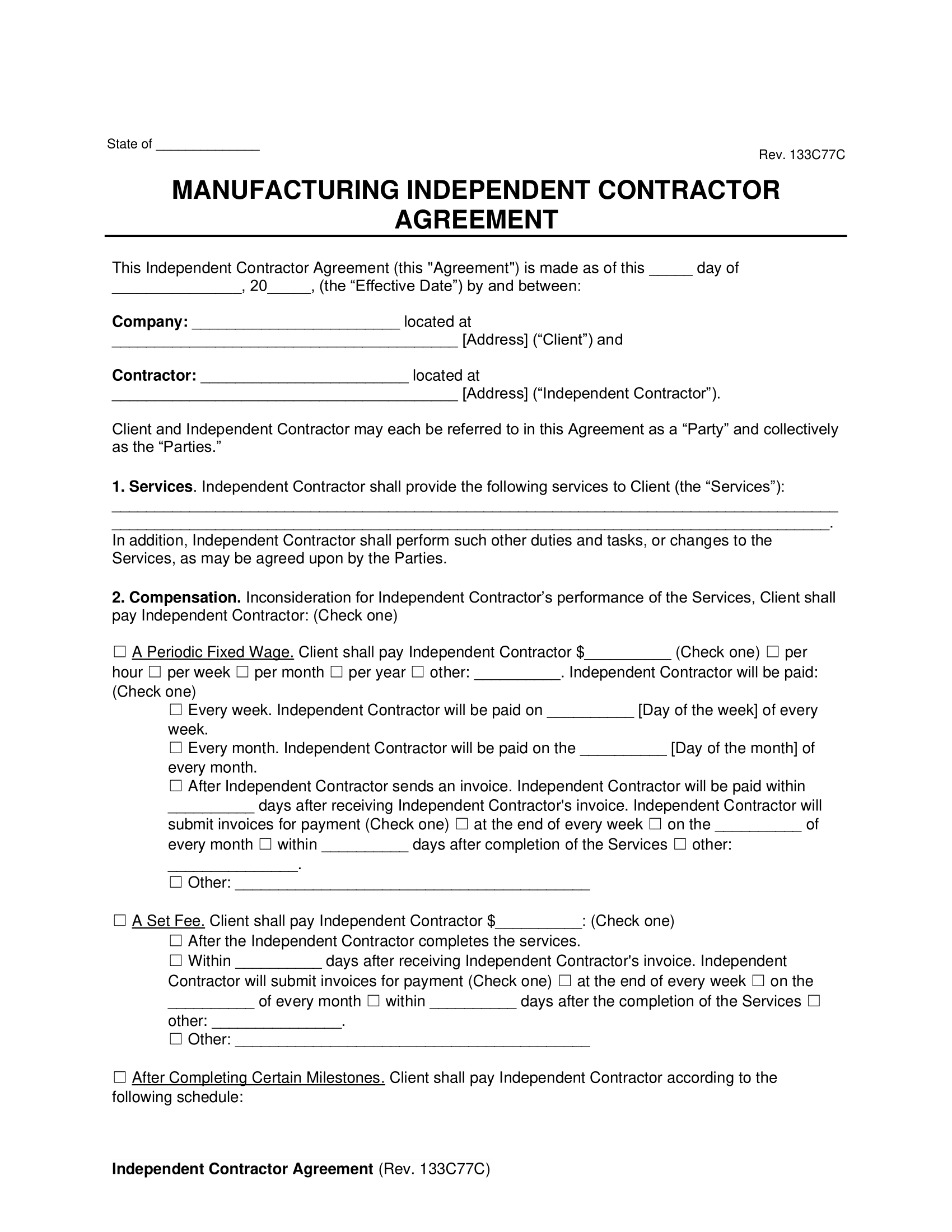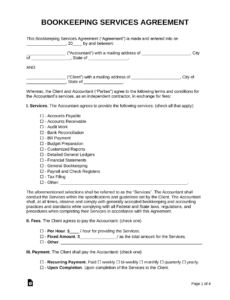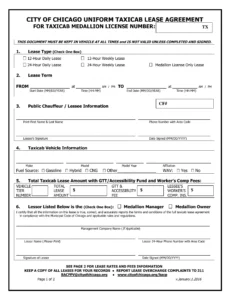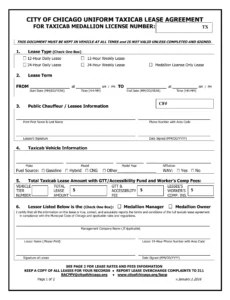Ever found yourself juggling multiple vendors, suppliers, or outsourced production lines? If so, you know the exhilarating chaos that comes with scaling a business. But amidst the excitement of growth, there’s a quiet hero that often gets overlooked: meticulous documentation. Specifically, when you entrust a third party with the creation of your products, having a clear, comprehensive contract manufacturing agreement template isn’t just good practice—it’s absolutely essential.
This isn’t merely about ticking a box; it’s about safeguarding your intellectual property, ensuring quality, defining timelines, and outlining payment structures with crystal clarity. For business owners, product developers, and procurement managers, a well-crafted template serves as your foundational blueprint, providing a common understanding and legal protection for all parties involved. It transforms potential pitfalls into predictable processes, letting you focus on innovation rather than dispute resolution.
The Power of Organized Planning and Professional Documentation
In the fast-paced world of modern business, relying on verbal agreements or informal emails is a recipe for disaster. Professional documentation isn’t just bureaucratic red tape; it’s the bedrock of transparency, accountability, and trust. Imagine the frustration of a misunderstanding about product specifications, delivery dates, or payment terms – these can quickly escalate into costly legal battles or irreparable damage to business relationships.

A properly structured document, such as a detailed legal contract or service agreement, provides undeniable clarity. It meticulously spells out the expectations, responsibilities, and obligations of each party, leaving no room for ambiguity. This proactive approach significantly mitigates risks, ensuring compliance with industry standards and legal requirements, and ultimately builds stronger, more reliable business partnerships that can withstand the inevitable bumps in the road.
Key Benefits of Structured Templates for Business Communication
Why bother with templates when you can just draft a contract from scratch every time? The answer lies in efficiency, consistency, and peace of mind. Structured forms and agreement layouts offer a robust framework, ensuring that no critical details are overlooked. This systematic approach saves an immense amount of time and effort that would otherwise be spent reinventing the wheel for every new engagement.
Think about the value of consistency. A template ensures that your core terms and conditions remain uniform across different manufacturing partners, simplifying legal review and internal processes. It also acts as a powerful compliance record, demonstrating due diligence should any questions arise. Furthermore, using a professional layout projects an image of competence and seriousness, enhancing your reputation and fostering greater confidence from your business partners and stakeholders.
Adapting This Template for Various Business Needs
While the name points to manufacturing, the underlying principles of a well-structured agreement are universally applicable. The core sections of defining parties, outlining scope of work, detailing terms of service, specifying payment schedules, and addressing liabilities are fundamental to almost any commercial interaction. A robust contract template provides a versatile foundation that can be adapted far beyond its initial purpose.
For instance, the logical flow and clear sections of this document can inspire or even form the basis for other critical business files. Consider adapting elements for a comprehensive business partnership agreement, a detailed freelancer contract, a service provider agreement for IT or marketing, or even a specialized memorandum of understanding. The essence of any strong legal document is clarity and thoroughness, qualities that are central to any effective contract manufacturing agreement template.
When Using a Contract Manufacturing Agreement Template is Most Effective
A dedicated template is invaluable in numerous scenarios where precision and legal clarity are paramount. Here are some instances where leveraging a robust contract manufacturing agreement template will save you time, stress, and potential headaches:
- Launching a New Product Line: When you’re bringing an innovative product to market and need a third-party manufacturer to scale production, this contract manufacturing agreement template ensures your design specifications, quality control, and intellectual property are fully protected.
- Outsourcing Production to a New Vendor: Establishing a relationship with an unfamiliar manufacturer requires clear terms from the outset. A comprehensive form delineates responsibilities, timelines, and legal recourse, minimizing ambiguity.
- Scaling Production Quickly: If your product suddenly takes off and you need to ramp up manufacturing volume rapidly, having a pre-vetted layout allows for quick, yet thorough, onboarding of additional manufacturing partners.
- Dealing with International Manufacturers: Navigating different legal systems and business cultures demands explicit documentation. The contract provides a common legal ground, covering everything from import/export duties to dispute resolution.
- Protecting Proprietary Designs and Formulas: For products with unique intellectual property, the business file can include robust non-disclosure clauses and ownership terms, safeguarding your innovations from unauthorized use.
- Establishing Long-Term Supplier Relationships: For ongoing manufacturing needs, a detailed agreement sets the framework for consistent quality, cost, and delivery, forming the basis of a stable partnership.
Tips for Better Design, Formatting, and Usability
A powerful template isn’t just about the legal jargon; it’s also about its presentation and ease of use. A well-designed document signing experience can significantly improve efficiency and reduce friction. Here’s how to make your template truly shine:
Clarity and Readability
Use clear, concise language. Avoid overly complex legalistic phrases where simpler terms suffice. Employ proper headings, subheadings, and bullet points to break up text and improve readability. White space is your friend – don’t overcrowd the page. Ensure the font is legible, and the font size is comfortable for reading, whether on screen or printed.
Logical Flow and Structure
Organize the content in a logical sequence that mirrors the manufacturing process or the relationship’s progression. Typically, this would involve sections for definitions, scope of work, materials, quality control, delivery, payment terms, intellectual property, confidentiality, indemnification, termination, and dispute resolution. A coherent structure makes the document easier to navigate and understand for all parties involved.
Customization Fields
Design the layout with clear placeholders for variable information, such as party names, dates, product specifics, pricing, and timelines. This could involve fillable fields in a digital version or clear blanks in a printable one. Make it simple for users to identify and input the unique details for each agreement without altering the core legal framework of the record.
Branding and Professionalism
Incorporate your company’s branding elements, such as logos and consistent color schemes, where appropriate. This adds a layer of professionalism and reinforces your brand identity. Ensure the overall aesthetic is clean and polished, reflecting the high standards of your business communication.
Version Control and Digital Readiness
If you’re managing multiple versions or updates, implement a clear version control system (e.g., v1.0, v1.1). For digital use, ensure the template is compatible with e-signature platforms and can be easily converted to PDF. Consider making it editable within common document software while protecting core clauses from accidental modification. This digital readiness is crucial for modern workflows and ensures a seamless document signing process.
Embracing Clarity, Professionalism, and Productivity
Ultimately, the value of a meticulously prepared template extends far beyond merely fulfilling a legal requirement. It’s a proactive investment in clarity, professionalism, and operational productivity. By providing a clear, unambiguous roadmap for your manufacturing partnerships, you eliminate guesswork, prevent misunderstandings, and establish a solid foundation of trust that benefits everyone involved.
This commitment to well-structured business documentation streamlines your processes, minimizes legal risks, and frees up valuable time and resources that can be redirected towards growth and innovation. In an increasingly complex business landscape, having a reliable legal contract at your fingertips is not just smart business; it’s an essential tool for maintaining control, ensuring quality, and fostering successful, long-lasting collaborations. Embrace the power of precision, and watch your business thrive with fewer logistical headaches and more strategic wins.
Whether you’re engaging a new supplier or formalizing an ongoing partnership, leveraging a robust and adaptable template is a testament to your organization’s commitment to excellence and efficiency. It’s about building a framework for success, one clear agreement at a time.


